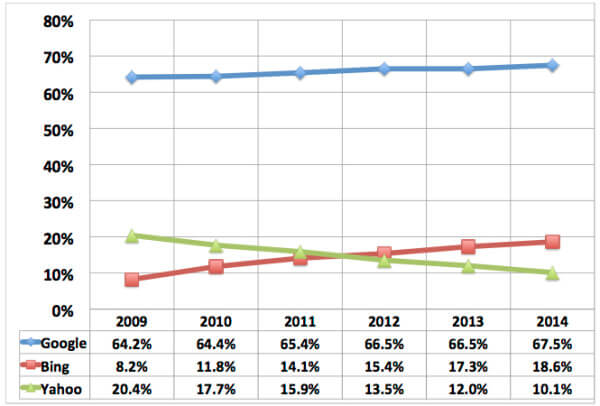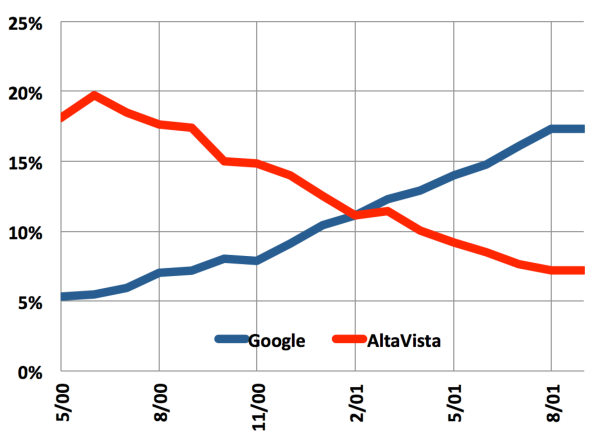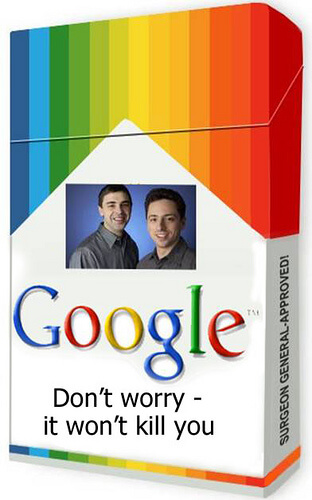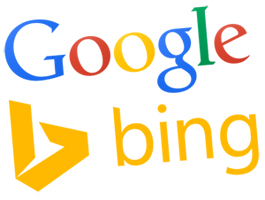At Five Years Old, Bing Has Come Far Yet Has More To Grow

Microsoft’s Bing search engine has turned five this week. There are good reasons for some birthday celebrations at Microsoft. The company has created a solid competitor to Google, grown its market share and created a search platform for other Microsoft products. But when it comes to mindshare, Bing is still far behind rivaling Google as […]
Microsoft’s Bing search engine has turned five this week. There are good reasons for some birthday celebrations at Microsoft. The company has created a solid competitor to Google, grown its market share and created a search platform for other Microsoft products. But when it comes to mindshare, Bing is still far behind rivaling Google as a search leader.
Give Bing A Week & You Might Think You Were At Google
I know what some might be thinking. Bing’s a solid competitor to Google? Bing certainly has had its stumbles. Every year, it seems like it redoes its search results pages in an attempt to figure out what it should be. It gained no respect from Google or others by harvesting Google’s search results as one way to improve its own relevancy. The Farecast feature it proudly touted at launch died a quiet death earlier this year.
But yes, Bing is a great Google alternative for many everyday needs. OK, I’m drawing from my personal experience here, and experiences can vary. But I can — and have — changed my search default from Google to Bing at times this year and hardly noticed a difference.
Anyone who really wants to understand how far Bing has come should try the test for themselves. Switch for a week. Likely, you’ll find on the first day or two wanting to scurry back to Google, because you might fear you’re somehow “missing” something. But if you resist that urge and keep going, you may then find yourself — as I did — mistakenly thinking you’re using Google when you’re really using Bing.
Growing Bing At Yahoo’s Expense
One easy measure of Bing’s success or failure is to look at market share. There, monthly search statistics from comScore are like an EKG for how well Bing is doing. Looking at those stats one way, Bing has had incredible growth. Looking at them another way, Bing’s not grown at all. Let’s review the figures:

The chart above shows the share of searches the three major search engines in the United States is estimated to have had over the past five years, looking at a snapshot of traffic in April of each particular year. The figures are only for desktop search; only for within the US, and I’ll get back to more about these caveats further below.
It’s clear that Bing has grown, going from a third place position to second place. That’s the growth story. But Bing hasn’t grown against Google. Instead, the past five years have been about stealing traffic away from its supposed search partner, Yahoo.
Call it the “Bing-Yahoo X,” because you can see the X formed when each year, Yahoo loses about the same share that Bing gains. It’s almost a direct transference, something I haven’t seen in my nearly twenty years of covering search since the “Google-AltaVista X” of 2000-2001:

Google is the real competition, the player Bing wants to beat. Indeed, Google is the player Bing wants you to think it is beating. When I talked with Bing’s director of search Stefan Weitz last week about Bing’s progress, he raised the idea that Google searchers were converting.
“Bing-It-On helped a lot. We saw massive conversions when we ran that,” Weitz said.
Bing-It-On was the comparison service and marketing campaign that Bing launched in September 2012, challenging people to pit its search results against Google’s. A month after it launched, 33% of those taking the challenge said they would use Bing over Google more often, Bing said.
If they are, comScore’s stats don’t show that. Google’s actually gained some share over time. One reason might be that ultimately, the number of people who tried Bing-It-On is relatively small, so that it doesn’t make an impact on overall usage if they do switch. Another reason is that what people say they’ll do and actually do can differ, especially if they have a habit.
Beating Google?
Habits are tough to kick, and that’s even harder when Google is like the cigarettes that don’t kill you, as I illustrated before in my Tough Love For Microsoft Search article of 2008:

Sure, some (though a growing number) will argue that Google is increasingly bad for your health, in that it continues to amass so much data about people as to make it a privacy and advertising nightmare. But the vast majority of people are clearly not worried about this, certainly not enough that the share figures reflect any major kicking of the Google Habit.
Another analogy I’ve long employed is that of search engine as “best friend.” Google is a best friend that people turn to for advice each day, multiple times per day, and it does an outstanding job of giving them good advice.
Bing — or any other challenger to Google — is like having someone you don’t know offering to be your new best friend. Thanks for the offer, but most generally have no incentive nor desire to abandon their existing best friend.
Give Bing another five years, and I think it will have gained even more of the share that Yahoo currently has. Maybe, just maybe, it will eat a bit into Google’s share. But it seems unlikely to me that Bing’s going to beat Google in terms of popularity or usage.
The Real Success: Bing As Platform
Bing is big on talking about itself as a platform these days. Microsoft CEO Satya Nadella just spoke to this again recently at last week’s Code Conference, saying that the value of Bing is a lot more than just Bing.com.
 Weitz said similar things to me in our talk last week, expressing excitement that Bing is the “backend” that powers things like the coming Cortana assistant in Windows Phone or search on Xbox.
Weitz said similar things to me in our talk last week, expressing excitement that Bing is the “backend” that powers things like the coming Cortana assistant in Windows Phone or search on Xbox.
“Am I ever going to win keyword search against Google in the US? Probably not. But that’s probably OK,” Weitz said, explaining that desktop search might not reflect best the next battlefield in search: putting search into services and apps, including third-party apps.
“That’s where I get excited. There are certain places where we do have that advantage, where we can make the OS’s better,” he said, adding that Bing has “better partnerships” that attract those outside Microsoft to its platform. “They’re coming to us now,” he said.
Of course, all the platform talk is a handy way to dismiss concerns that Bing isn’t gaining on Google — and that’s even when mobile figures are added in, where comScore tells me Google’s lead is even bigger than with desktop search.
But it’s also true. Bing does have a huge success in having built up a credible search platform.
Search Isn’t A Commodity
 Consider Google. Search underpins so much of what else Google does now. It powers the compelling Google Now service on phones, both Android and iPhone. It’s tied into maps. It’s tied into finding video content. It helps in powering ads that are being delivered.
Consider Google. Search underpins so much of what else Google does now. It powers the compelling Google Now service on phones, both Android and iPhone. It’s tied into maps. It’s tied into finding video content. It helps in powering ads that are being delivered.
Search isn’t a commodity, as some have assumed in the past. Search is a fundamental technology that relatively few companies possess in scale.
Sure, many companies can provide specialized search. Yelp will get you your restaurant reviews. Apple’s Siri will direct you to a variety of specialized resources. But search, at scale, means you have a platform prepared to handle any type of search tossed at it plus the ability to leverage it for non-traditional uses.
If your search engine comes back with an empty answer, that’s a fail. To avoid fail, the web is your “backup,” the haystack you can hunt through for a that missing needle when all else doesn’t seem to work. So web search technology, while it might see old fashioned and going out-of-date, actually remains core. Those who have it have grown: Google & Bing. Those who don’t slowly disappear from the search space: Yahoo.
With Bing, Microsoft has created a solid search platform that will likely continue to grow and give the company strength where some may see weakness. That would include investors who assume you can only measure Bing’s success by how much money is earned directly off of it. Microsoft’s generally assumed as still losing money there; I asked the company about this, but it gave no comment on the profitability of Bing as a standalone service.
 Microsoft’s deal last year for Bing to power Apple’s Siri is an example of how search is a fundamental strength it has beyond what happens just at Bing.com. Apple, for all its money and technological savvy, doesn’t have a search engine of its own. It has to outsource, either to Google or Bing. And while that works for the short-term, it’s like home ownership. Apple fails to build any search equity to build on.
Microsoft’s deal last year for Bing to power Apple’s Siri is an example of how search is a fundamental strength it has beyond what happens just at Bing.com. Apple, for all its money and technological savvy, doesn’t have a search engine of its own. It has to outsource, either to Google or Bing. And while that works for the short-term, it’s like home ownership. Apple fails to build any search equity to build on.
Consider Cortana. I’ll be looking more deeply about life with it in the near future. The short story is that it’s still baby steps for Microsoft’s assistant compared to Google Now — Google’s own predictive search service that is far ahead of Cortana.
But at least Microsoft has a start, has a predictive search tool that might grow into the downright addictive power that is Google Now. That’s built off of search. And it’s what Siri lacks it. Siri has no memory, no real ability to predict what you need, an ability that likely will prove crucial for our mobile devices in the coming years.
The Next Five Years
Bing itself is celebrating its birthday with a look back at the past five years. It’ll be interesting to see where Bing goes in the next five years. It just scored another win by powering Spotlight search in the forthcoming versions of Apple’s Mac OS X “Yosemite” operating system and iOS 8. Bing has certainly proven itself to be more a contender than I think many would have believed. Maybe in five years, we’ll see a real platform-to-platform battle happen.



